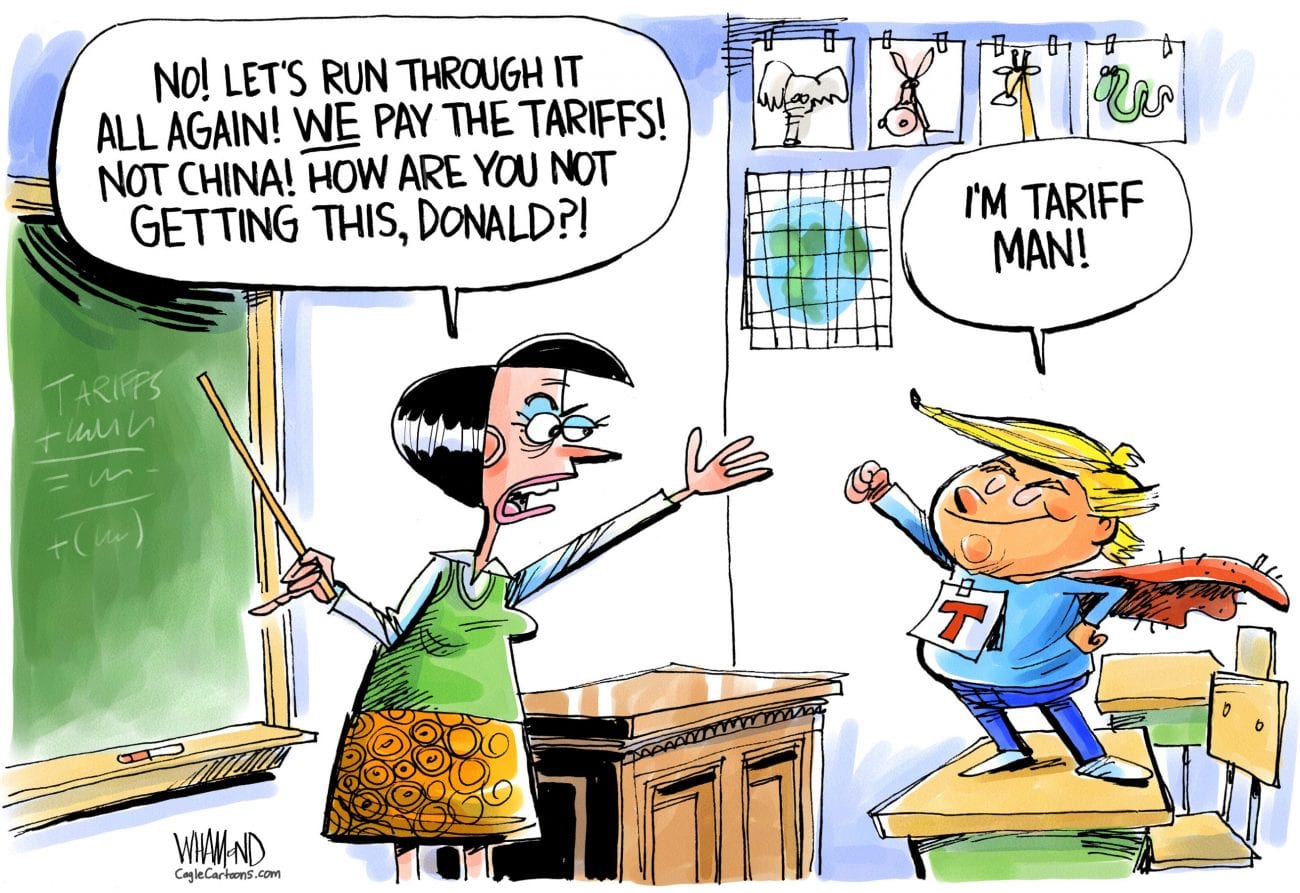BY FROMA HARROP
 Not long ago, agriculture was a crown jewel of America’s export economy. Then President Trump happened.
Not long ago, agriculture was a crown jewel of America’s export economy. Then President Trump happened.
He launched his “easy-to-win” trade wars, and our trading partners hit back right where the farm belt hurts.
Soybeans have been our biggest farm export and China their biggest foreign market. Last year, U.S. farmers sold almost $14 billion worth of soybeans to China. That amount is down considerably, to say the least. In November, China’s imports of U.S. soybeans fell to zero.
Leave it to others to explain why the agricultural heartland so ardently backed a presidential candidate promising a trade conflagration sure to hit it the hardest. Despite it all, Trump’s Republican allies held on to most of the major soybean-producing congressional districts in the midterms. Explain that.
In June, a month before China slapped 25% tariffs on American soybeans – in revenge for U.S. tariffs on its products – the University of Tennessee made a prediction: Such a move would cost American soybean growers as much as $7.7 billion. So what followed really isn’t a surprise. Nor is it a shock to see Brazilian soybean farmers moving in to pick up the pieces.
Trump’s response was to send farmers “relief” money to make up for losses he largely created for them. And although the sums sound grand to the taxpayers, they’re not grand enough to make up for the damage. A dairy farmer in Wisconsin told The Wall Street Journal his check would pay for only one month’s worth of his barn’s electricity costs. Another farmer said the $10 he’d get for his 41 acres of corn wouldn’t cover a tank of gas for his pickup.
Before signing the new farm bill, Trump released a video of himself singing the theme song from the old sitcom “Green Acres.” Performing at the 2005 Emmy Awards, he wore “heehaw regalia,” as Fox News put it. A New York real estate tycoon playing the hayseed. Hilarious, don’t you think?
The United States does have serious complaints over China’s trade policies. The best way to exert our influence would have been to stay in the Trans-Pacific Partnership, created to help its members confront China. In practice, it would have let the U.S. set the rules of trade.
Upon taking office, however, Trump pulled the U.S. out of the TPP. At one point, he seemed to think China was a member of the TPP rather than its target. When forced to acknowledge that China wasn’t a member, he said China would sneak in “as they always do.”
Farmers now worry about Japan. It’s not that Japan is raising tariffs on U.S. products. It’s that it is lowering tariffs on products sold by America’s agricultural competitors – Canada, Australia, New Zealand, Chile – which stuck with the trading bloc. It’s now called the Comprehensive and Progressive Agreement for Trans-Pacific Partnership.
Trump insists that he can wrest trade concessions from Japan in a bilateral agreement – using his usual tools of threats, bluster and insulting tweets, one imagines. The less optimistic head of U.S. Wheat Associates said that sales to Japan, which buys about half its imported wheat from the U.S., face “an imminent collapse.” [The U.S. “has not sold one kernel of wheat” to China for months, he added.]
The U.S. Meat Export Federation estimates that exports of beef and pork to Japan will drop by more than $1 billion in five years. By the way, despite the approval of the “new NAFTA,” Canada and Mexico are keeping tariffs on U.S. farm products in retaliation for continued U.S. duties on their steel and aluminum.
At the farm bill signing, Trump patted farmers on the head with the words, “Ranchers, agriculture, incredible people.” No further comment.
– Froma Harrop’s columns appear regularly in The Oklahoma Observer
Creators.com







